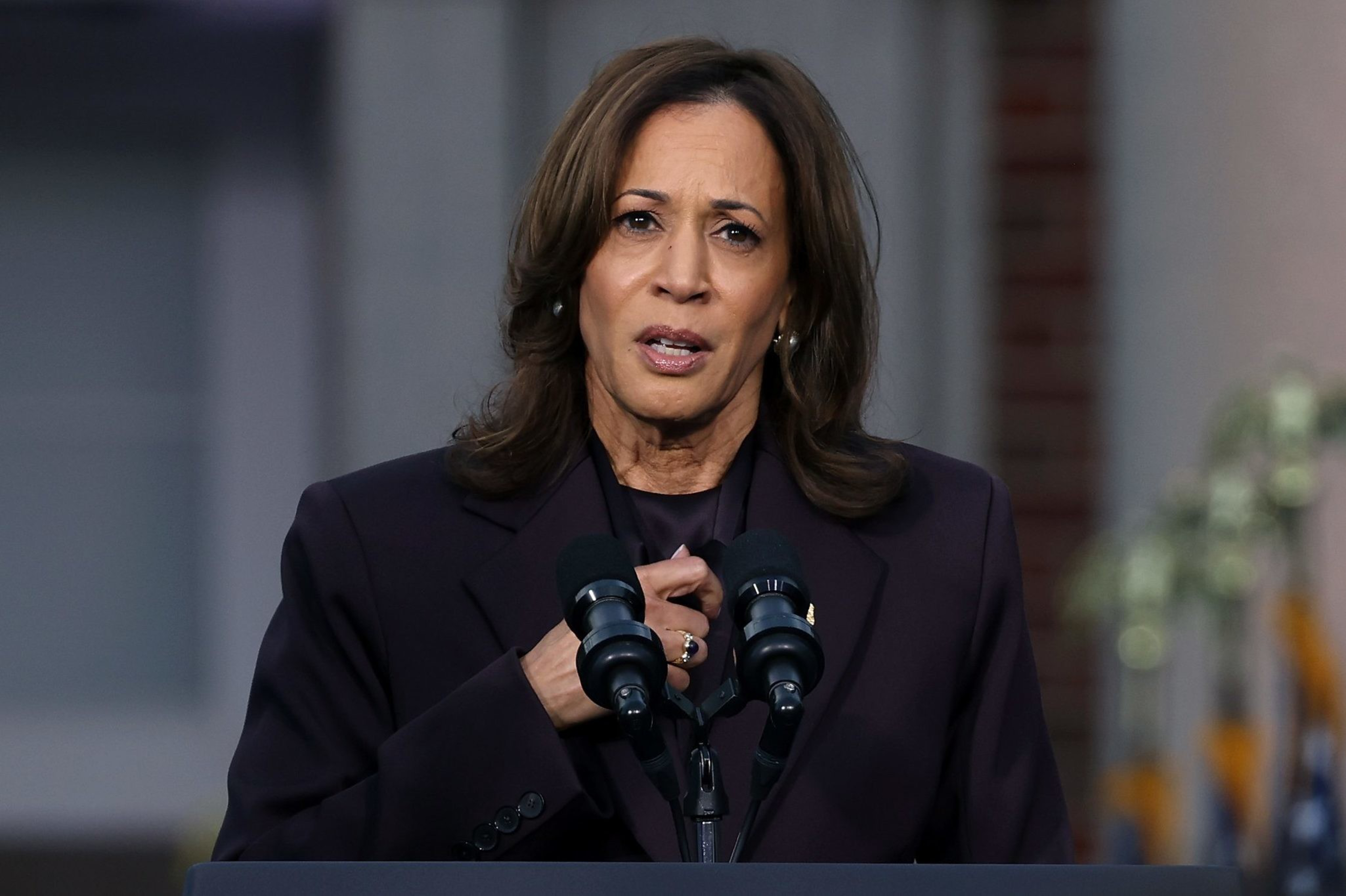Kamala Harris was at the Masonic on Sunday afternoon for a conversation about her new book, “107 days.” So was Doug Emhoff, her husband. Everyone was thrilled to see them. They were in friendly territory. The ovation was deafening.
“That election was quite unprecedented in a number of ways,” Harris, former San Francisco District Attorney, said at the beginning of her conversation with comedian D.L. Hughley. She was asked why she spilled the beans about that historic period after Joe Biden dropped out of the 2024 presidential race — thereby sending her off to run the shortest presidential campaign in modern history.
“It was the closest election for president,” she said as she got out of her chair to address the audience. “Let history reflect that. … It is not a mandate.”
While “107 Days” includes hot takes and gossip, for which Harris has been roundly criticized, the conversation wasn’t about that. It wasn’t about her choice not to choose Pete Buttigieg as running mate because she didn’t think America could handle a gay man and a Black woman on a presidential ticket, and it wasn’t about her admission that she knew far before Biden dropped out that he was too old to run for president.
If the book was Harris after a couple of glasses of wine, lying on her therapist’s couch, venting to release herself from the unbearable weight of her loss and the reality it has created, then her talk at the Masonic was Harris sober, post-jog, looking to galvanize a coalition she is certain exists — and is big enough, she thinks, to defeat whatever comes after President Donald Trump.
It started with Brené Brown-style vulnerability. Harris was “in pain,” she said, after her Nov. 5 loss.
“As the night went on, we learned the outcome,” she recalled. “The only thing I could say when I was told — I couldn’t stop, I said it over and over again, I couldn’t stop — was my God, my God, my God.”
“I bet that’s not the only thing you said,” Hughley quipped, to a roar from the audience.
“I started grieving,” Harris responded.
It was clear she was comfortable, in part because Hughley was such a charitable moderator, at one point stating that the former vice president was “right about everything.”
“They’re winning if we just get under the covers, put a pillow over us and say, ‘Wake me up when it’s over,’” Harris said. “Because here’s the thing, guys: This thing may get worse before it gets better.”
The audience responded with nods and chirps of “yup.”
Harris drew a direct line from the government’s poor handling of Covid to the cynicism felt by Americans — including Democrats. She reflected on how other countries try to sow distrust with misinformation on social media. These past few years have been a roller coaster, she seemed to be saying, and I was in the front row the entire time. Let me feed you a word salad about what we need to do now.
“Democrats have to do a better job, for example, of debunking this gaslighting that is happening to suggest that the reason for your predicament are people who are relatively powerless instead of people who are powerful,” she said, “basically saying to people, ‘The reason you have less is because of people who have even less than you.’”
She wants to keep the fight going and claimed that Trump’s promise of lowering prices has failed. Democrats need to focus on affordability, and they’ll be alright, she said.
Still, it was difficult to make out just what Harris’ coalition is now. Yes, she could be a compelling figure, but isn’t her book just an admission that she is in fact a bad decision maker? Or maybe, she said, the Democrat Party could do things differently. It could stop looking for another Obama, for one.
“Democrats have got to be over what I have named — I call — ‘The Savior Complex,’” she said. “There are many stars.”
She was just there to remind the Democrats she could be the brightest one.
Attendees felt that.
Amy Anderson, a 52-year-old from the East Bay, denied that Harris has any culpability for the loss to Trump. Society just wasn’t ready, she said.
“I think she was fine,” Anderson said before the talk began. “I think the patriarchy and the haters picked at little things.”
For Harris’ most ardent local fans, her return to SF was bittersweet. She had been betrayed by her party, on top of losing. Now, they all have to face the wreckage.
“It’s a heartbreaking experience,” said Rose Silva, 65, of Modesto.
Lisa Andresen, 68, of Riverside batted away the notion that Harris still needs to prove herself. There’s nothing else for Dems to do but listen — and nothing Harris needs to do differently. She can stop working but keep talking.
“She just needs to be the messenger,” Andresen said.
